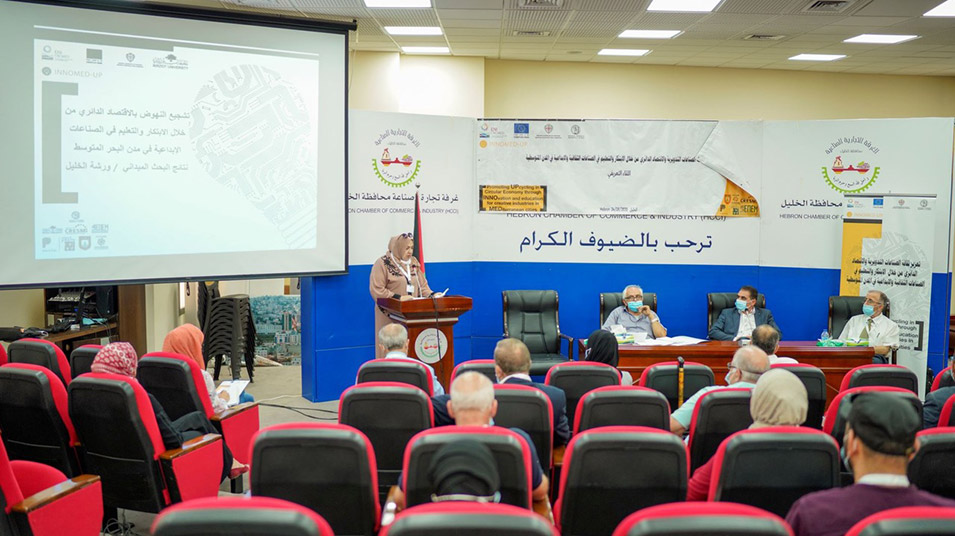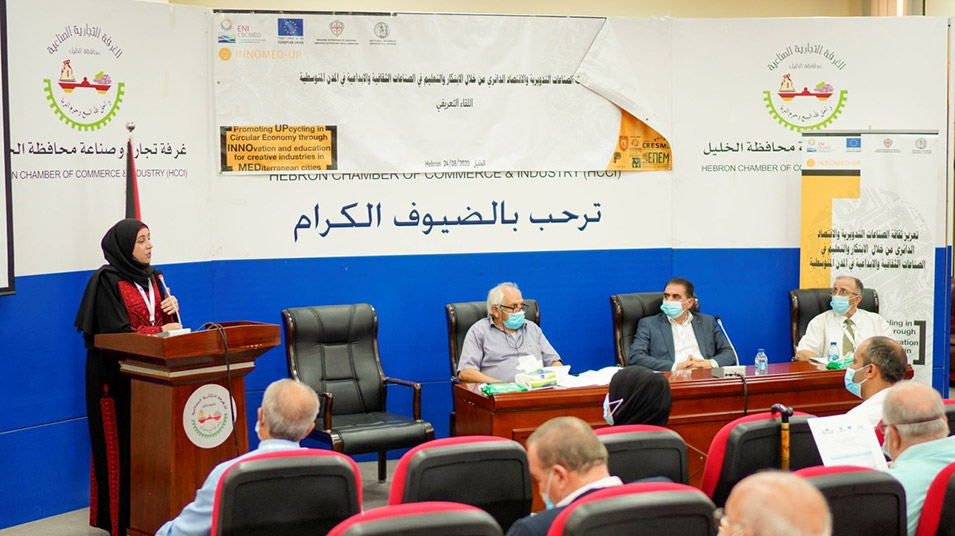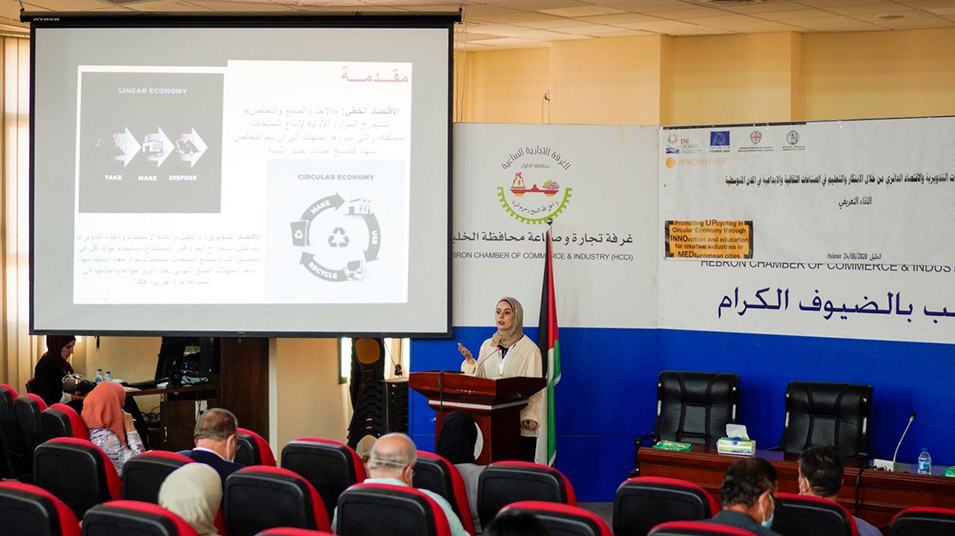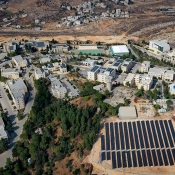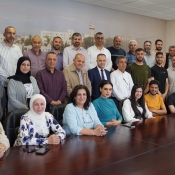First introductory workshop on circular economy, recycling held in Hebron
Birzeit University completed a first introductory workshop to introduce decision-makers and members of public and private institutions to the circular economy, held on August 24, 2020, in Hebron.
This project is part of the “Promoting Upcycling in Circular Economy through Innovation and education for creative industries in Mediterranean cities-INNOMED-UP,” funded by the European Union under the ENI CBC Med program that finances cross-border cooperation projects in the Mediterranean region. INNOMED-UP promotes innovation and education through upcycling and engaging in the circular economy for industries in Mediterranean cities.
The event stressed the importance of recycling, supporting small and medium enterprises (SMEs) that work in cultural and creative initiatives (CCIs) and to raise awareness of their impact potential on promoting economic and social development.
Attending the workshop were 50 stakeholders and representatives from governmental institutions, trade and industrial unions and SMEs.
INNOMED-UP proposes to work with CCIs, aiming to shift local urban economies towards a circular production and consumption paradigm that includes the optimal use of material resources and innovation enhancement for SMEs.
Shadi Ghadban, the project’s manager at Birzeit University, inaugurated the workshop, praising the previous success of MEDNETA, a project in which the university participated in 2014 and that helped Hebron win the 2016 World Crafts City Award.
Ghadban said INNOMED-UP continues the work of MEDNETA. He expressed enthusiasm about opening the new project that is hoped to strengthen cross-border cooperation in the fields of culture, education and technology. This project, according to Ghadban, will help achieve greater convergence with the Mediterranean community and draw attention to the role of the circular economy in upgrading, revitalizing and renewing Palestinian cities.
Abdo Idris, the chairman of the Hebron Chamber of Commerce and Industry, assured that cooperation between all involved parties is the basis for the success of any project.
Rafeeq Al-Jabari, advisor to the governor of Hebron, pointed out that SMEs engaged in crafts are one of the pillars supporting the Palestinian identity, as they refer to the history and heritage of cities and towns and therefore reaffirm the Palestinian right to remain on their land.
Jihad Al-Owawi, a representative from the Municipality of Hebron, focused on the lack of optimal use and insufficient solid waste management in Hebron. This is why, Al-Owawi said, initiatives related to recycling and solid waste exploitation have so far not been successful.
During the meeting, success stories of MEDNETA beneficiaries were presented as well. Both Kholoud Nirukh and Suad Shaheen expressed that the MEDNETA project positively impact on their career and artistic life: As it helped develop their skills, the demand for their products increased.
The workshop concluded with a number of recommendations. First, the participants stressed the importance of raising interest in handicrafts and enhancing the role of handicraft owners in Palestine by providing a space that helps them market their businesses. Second, they recommended that a tourism map that includes the locations and names of all the SMEs and handicrafts owners in Hebron be created. Third, they suggested that institutions and craft owners should coordinate more effectively in the preparation and holding of official events.
The second introductory workshop will be conducted in Nablus.


